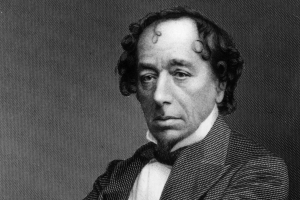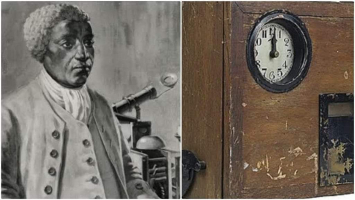Top 9 Interesting Facts about Benjamin Franklin
Benjamin Franklin (1706–1790), a prominent figure in early American history, was also a statesman, writer, publisher, scientist, inventor, and diplomat. ... read more...Franklin had no formal schooling despite being born into a Boston household of modest circumstances. Later, he established a prosperous printing company in Philadelphia and amassed fortune. Franklin had a significant role in the development of his adopted city's public institutions, including a hospital, college, and lending library. He also received praise for a number of other endeavors, including his electrical experiments. He participated in the Second Continental Congress during the American Revolution and contributed to the Declaration of Independence's drafting in 1776. He also mediated the 1783 Paris Peace Treaty, which put an end to the American Revolution (1775-83). In 1787, in his final significant act of public service, he was a delegate to the convention that produced the U.S. Constitution. Here are some interesting facts about Benjamin Franklin.
-
The man who was regarded as the most intelligent American of his day seldom ever entered a school. Franklin only attended Boston Latin School and a private academy for two years before starting the family candle and soap manufacturing company. He began working as an indentured apprentice at his brother James' printing business when he was 12 years old. Young Benjamin made up for his lack of education by spending all of his little earnings on books, frequently forgoing meals to do so. By reading essays and articles and then rewriting them from memory, he improved his compositional abilities.
Though almost entirely self-taught, Franklin was instrumental in the founding of the University of Pennsylvania, and he later received honorary degrees from Harvard, Yale, Colleges of William and Mary, St. Andrews and Oxford. While his studies were in progress, he dropped out and joined his family's soap and candle making business. He later apprenticed at his brother's business card printing shop. Although he was involved in the family business, he never thought of giving up his studies. He still maintains the habit of reading books, researching and learning more knowledge from articles, essays or any project seminars that he may read or attend. His studious, determination and energy not only made him a respected writer, politician, and inventor, but also earned him honorary degrees from famous university such as Harvard, Yale...
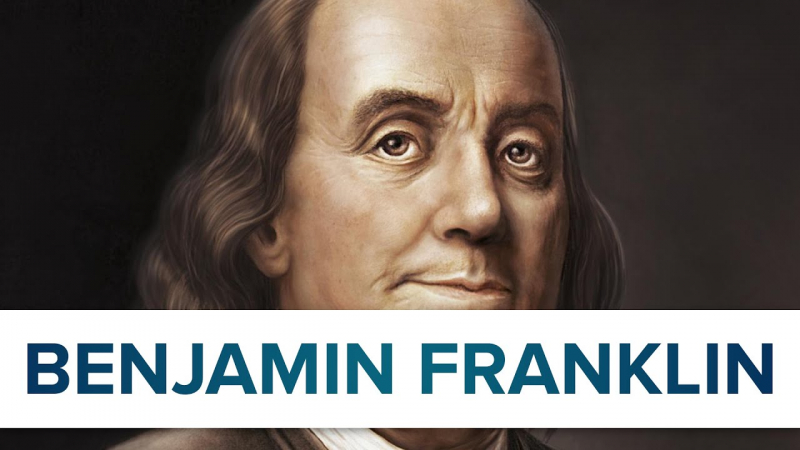
Source: YouTube 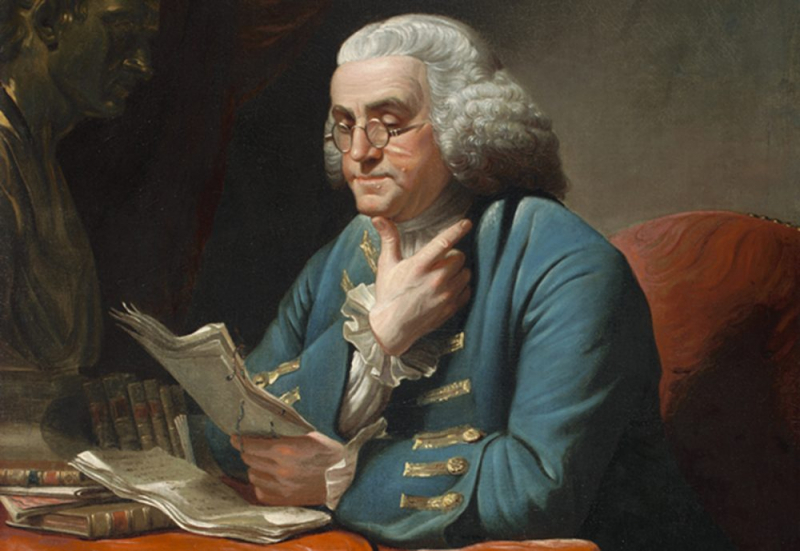
Source: nstarcapital.com -
Franklin arrived in Philadelphia in 1723 with little money, but over the next 20 years, he amassed a huge fortune as a publisher of the well-known "Poor Richard's Almanac," owner of a print shop, and land speculator. The 42-year-old man had amassed enough wealth by 1748 to hang up his printer's apron and transition into a "gentleman of leisure." With his retirement, Franklin had the time to devote his remaining 42 years to scientific research and the creation of innovations including the lightning rod, bifocal glasses, and a more effective heating furnace.
Franklin's resignation letter helped establish the modern concept of a life where you can do many jobs, many jobs that you can afford, are passionate about, and committed to. This concept has been ranked among his great inventions. Fifty percent of Franklin's ownership of the company was transferred to him in a transaction to Hall. Franklin's printing business was unlike any other commercial activity in the Colony. printing was an 18th-century local commercial activity that was centered on small businesses and government customers, and on products such as stationery, legal notices, currency, invoices and invitations. Franklin took it upon himself to alter this parochial model in two respects: as publisher of the Pennsylvania Gazette and the wildly popular Poor Richard's Almanac, he was a substantial copyright owner. He was also the kind of investor with the bravery, pioneering risk of supplying presses designed specifically for ambitious printers in far-flung places (New York, Newport, Charleston, even Antigua magazine) in exchange for a small but significant profit for the expansion of this printing business.
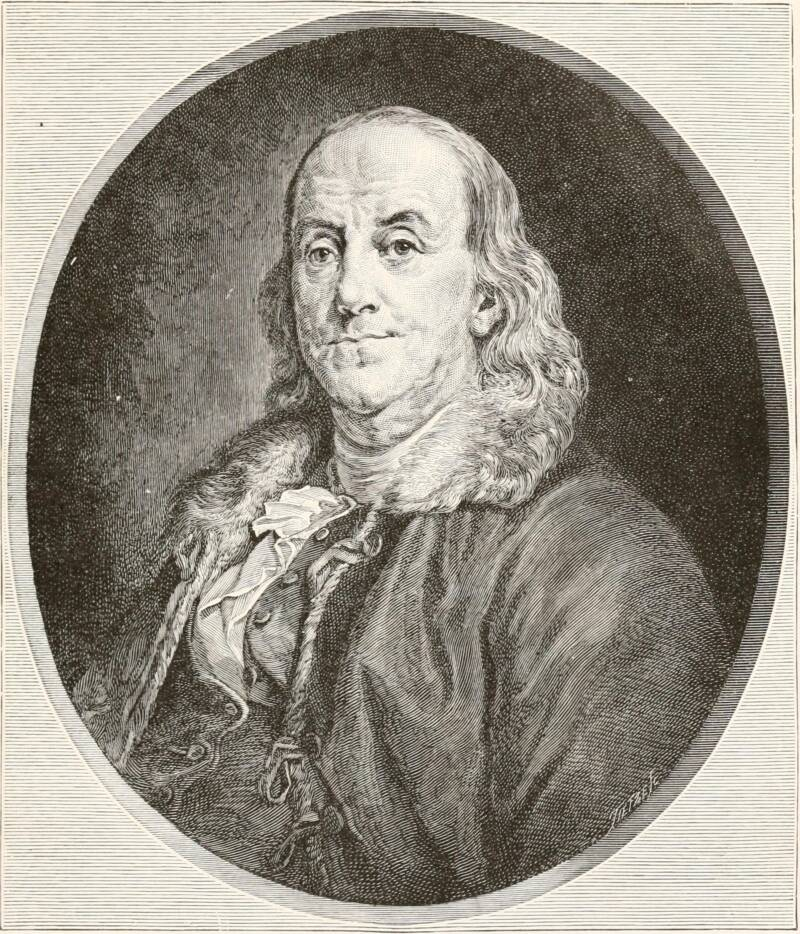
Source: All That's Interesting 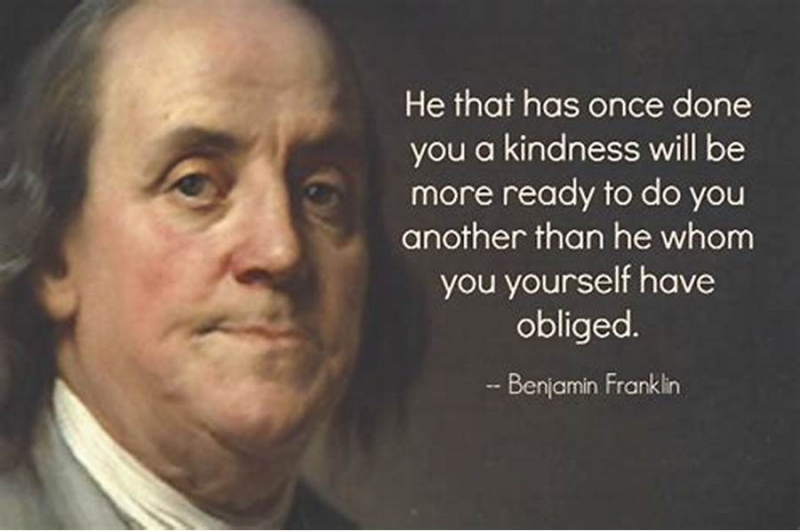
Source: yurtopic.com -
The word Armonica is derived from the Greek word "armionica" meaning harmony. The instrument is also called as harmonica because of its capability to produce multiple sounds that are pleasing to hear. The Glass Armonica uses a series of glass bowls of different sizes that produce sounds of different frequencies when subjected to friction. Hence these types of musical instruments are also classified as friction idiophones. You may also call this musical instrument with other names like the glass harmonica, glass harmonium, bowl organ, hydrocrystalophone, or simply the harmonica or harmonica.
The "glass armonica," one of Franklin's more bizarre creations, is a device meant to mimic the strange sound that a wet finger makes when brushed along a glass' rim. He had 37 glass orbs of various sizes and pitches manufactured by a London glassmaker for his initial prototype, which he set on a spindle turned by a foot pedal. This was done in 1761. The user would merely moisten their fingertips, rotate the device, and then touch the individual glass pieces to produce distinct tones or melodies. Throughout the 18th and early 19th centuries, the armonica would develop a sizable following. Numerous were produced, and famous composers like Mozart, Beethoven, and Strauss all wrote music for them. Franklin would later write that, “Of all my inventions, the glass armonica has given me the greatest personal satisfaction.”

Source: grunge.com 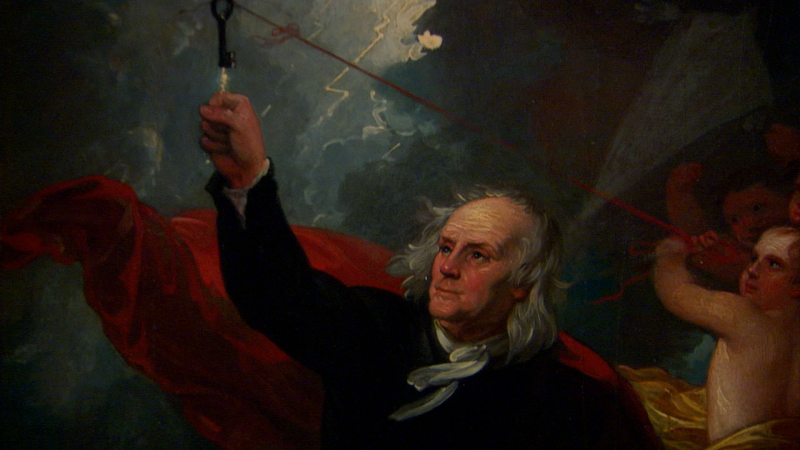
Source: History -
Franklin was one of the last of the Founders to support complete independence from Britain. He advocated for peaceful compromise and the maintenance of the empire despite having spent several years living in London and holding royal posts, once remarking that "every encroachment on rights is not worth a rebellion." He declared the Boston Tea Party to be a "act of terrible injustice on our behalf" in 1773 and demanded that the East India Company be made whole for its losses.
By the time he returned to the United States for the Second Continental Congress in 1775, Franklin had grown disenchanted with the monarchy, but many of his fellow patriots still had their doubts about him because of his previous support for King George III. Before he publicly announced his support for American independence, a few even suspected he might be a British spy.
After independence was declared, Franklin sailed for France on October 27, 1776, as a member of a commission authorized by Congress to negotiate a commercial treaty with Louis XVI’s government. In 1778 Franklin signed a Franco-American Treaty of Alliance. Thus, from those first furtive winter meetings at Carpenter’s Hall in Philadelphia three years earlier, aided by Franklin’s wise guidance and diplomacy, emerged massive French moral, monetary, material and eventually direct military support for the American colonial cause.
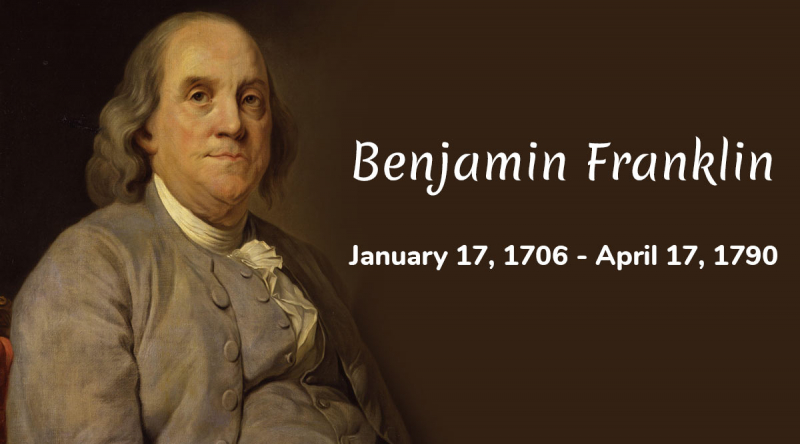
Source: LatestLY 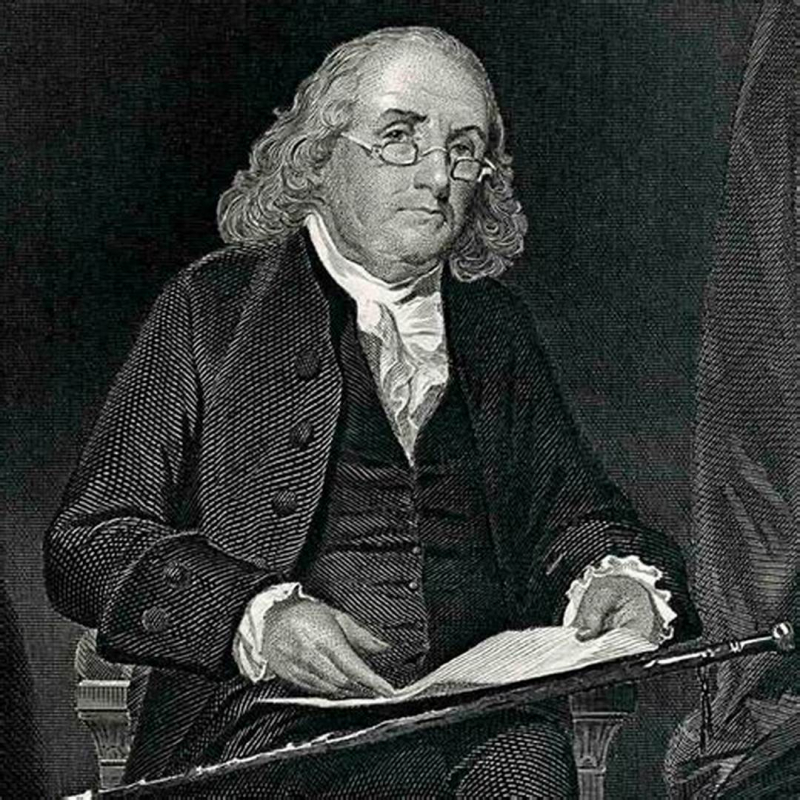
Source: pinterest.com -
A project to improve the then alphabet was planned by Franklin while he was living in London, France in 1768. A spelling system of his own phonetic transcriptions was later published by him. when he noticed his frustration with the numerous spelling mistakes in English. the redundant consonants C, J, Q, W, X and Y, were removed by him and replaced by six new letters representing a different sound. With determination and confidence that his new alphabet would be easy to learn, absorb and enthusiastically received by everyone, he published the alphabet with great confidence that it would greatly reduce spelling error. He conceived that any difficulty in implementing a new alphabet would eventually be overcome by its logic and simplicity. However, biographer Walter Isaacson wrote that the alphabet "brought his passion for the betterment of society to the path of radical extremes".
Franklin's faith and enthusiasm seem to have received a cold drink from his relatives and people around him after his new alphabet was born. Without giving up, he managed to convert Webster, a pioneer in spelling reform. Webster advocated standardizing American spelling but, until he met Franklin, advocated against simplifying it. However, after being informed about the project and his planned goals, Webster was inspired and joined hands to draft a more conservative proposal to reform the alphabet, which is independent of on creating new characters. His efforts were met with resistance and were derided by critics as an unsightly perversion of the language - criticisms that can also be applied to Franklin's abandoned plan. Receiving ridicule, criticism and contempt for his efforts, Franklin finally gave up while Webster persisted to the end and published the book.
No one can deny that language is like an indispensable thing in human life and plays an extremely important role in society. But Franklin took this to a negative without a positive. It is said that this is the same way he sees a courageous and original turkey compared to the United States. The vision of a thing is extremely important, and it cannot be based only on an individual's point of view, but it is also based on the context, the era, the history of a society, which is the lesson after this case of Franklin.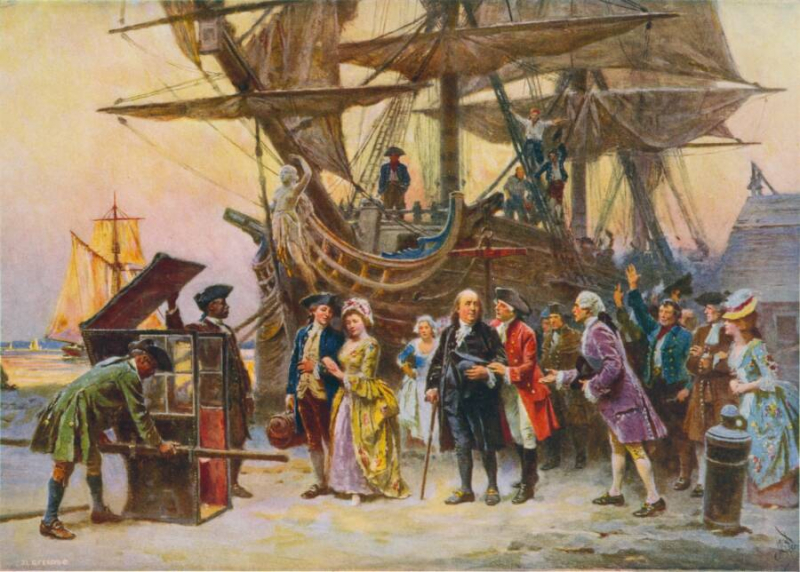
Source: blogspot.com 
Source: Pinterest -
Franklin also fathered an illicit son named William in 1730 in addition to the two children he had with his wife, Deborah Read. Franklin joined in the desire for separation from the home nation, but William remained a steadfast Tory who called the revolutionaries "intemperate zealots" and refused to give up his position as the royal governor of New Jersey. He was imprisoned in a colonial jail for two years for resisting the revolution, rose to the position of leader in a gang of loyalists, and then relocated to England at the end of the war.
Due to his involvement in the Asgill Affair, William Franklin rose to prominence as a devoted Loyalist. William oversaw a raid in 1782 that resulted in the capture of Joshua Huddy, a New Jersey militiaman. Huddy was a well-known member of the Association of Retaliation, a gang that frequently murdered and viciously attacked Loyalists. William was charged with giving the order to Huddy's execution to Officer Richard Lippincott in retaliation for the execution of other Loyalists. William's involvement in the Asgill Affair and its long-lasting ramifications on British-American relations. Peace talks were starting as the conflict was coming to a conclusion. Furious after learning of Joshua Huddy's execution, General George Washington threatened to execute Captain Charles Asgill, a British officer captured at the Battle of Yorktown, unless the British handed over Officer Richard Lippincott to the Americans for trial. Instead of handing Lippincott over to the Americans, the British tried him themselves and cleared him of all accusations related to Joshua Huddy's death.
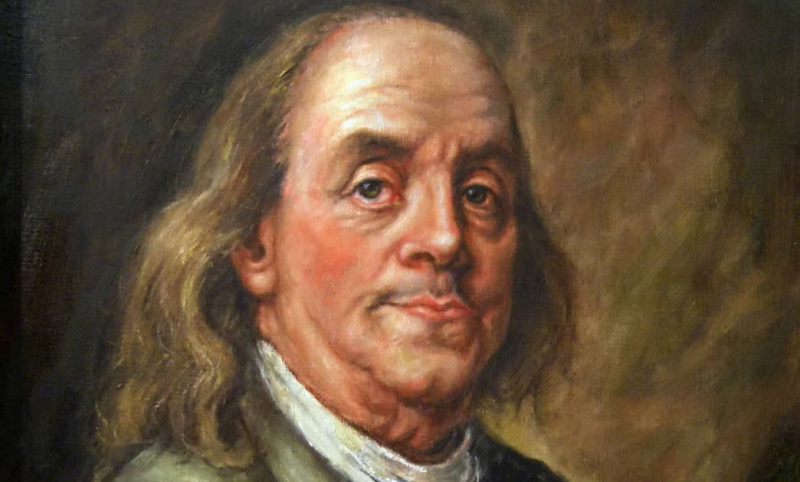
Source: blogspot.com 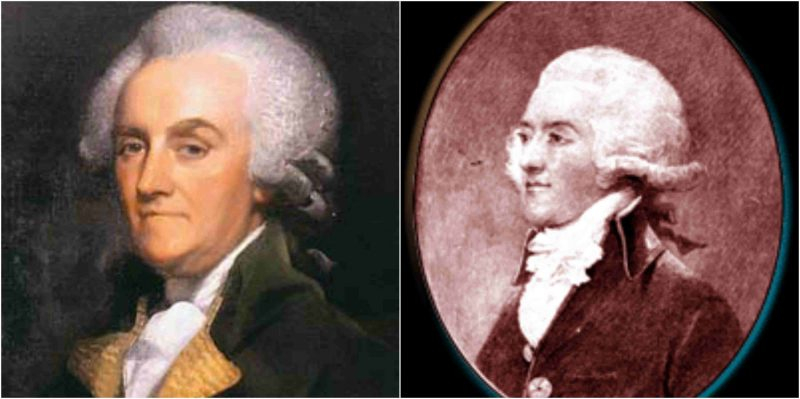
Source: The Vintage News -
Franklin was dispatched to France by the Continental Congress in 1776 to look for military support for the uprising. The 70-year-old was already well-known throughout the world for his lighting experiments—the French even referred to their electrical experimenters as "Franklinistes''—but after moving to Paris, his notoriety reached entirely new heights. Franklin took advantage of the French perception of Americans as rugged frontiersmen by dressing simply and donning a fur hat, which quickly became his signature and was shown in numerous medallions and paintings throughout France. Women also started wearing large wigs in a look known as "coiffure a la Franklin'' to mimic the cap.
When Franklin later swapped the fur cap for a white hat for the signing of the 1778 treaty between France and the United States, white-colored headgear quickly gained popularity among the men of Paris. In order to stay warm, Benjamin Franklin wore a fur cap when he landed in France in December 1776. Franklin was especially adored by the French nobility who welcomed him because they saw in him the embodiment of the stereotype of the "rugged American frontiersman" they so revered. Franklin actually ordered a sizable number of fur hats from America due to the popularity of his picture, which he wore nonstop while in Paris.
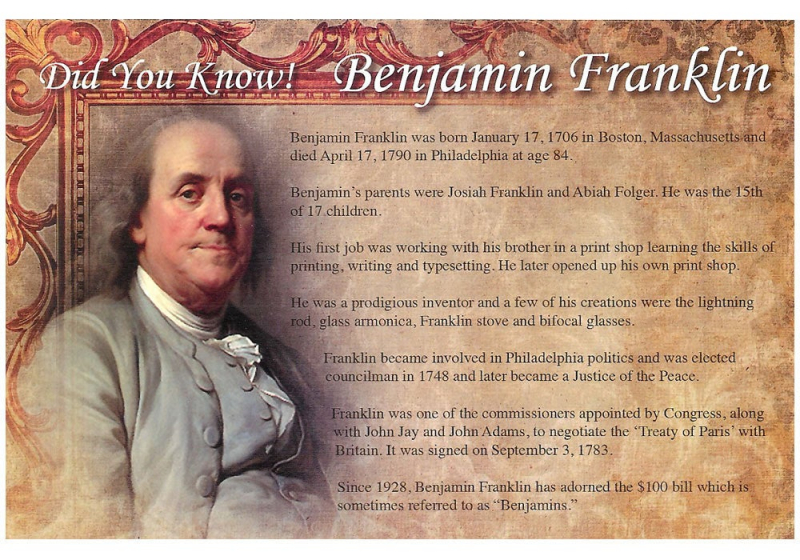
Source: xenosgifts.com 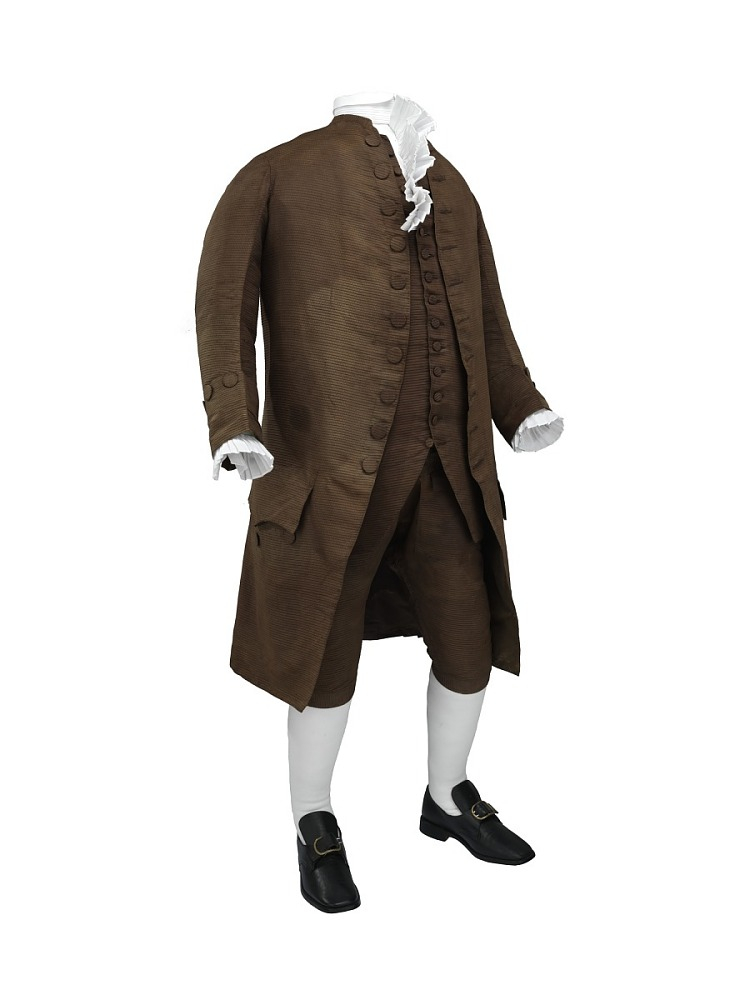
Source: National Museum of American History -
During his lifetime, Franklin had at least two slaves, both of whom were domestic servants. But as he became older, the more he realized that slavery was an evil system that went against the ideals of the American Revolution. He assumed control of a Pennsylvanian anti-slavery campaign in 1787, and in 1790 he asked Congress to intervene to free "those pitiful beings who alone in this land of freedom are degraded into eternal bondage." After the petition was rejected, Franklin continued to fight until his death a few months later. He even included a clause in his will requiring his daughter and son-in-law to liberate their slave before receiving any inheritance.
A vociferous opponent of slavery in his final years, Benjamin Franklin was elected president of the Pennsylvania Society for Promoting the Abolition of Slavery in 1787. Franklin passed this Constitution barely one month before he attended Philadelphia's 1787 Constitutional Convention. The Society was first established in Philadelphia on April 14, 1775, as The Society for the Relief of Free Negroes Unlawfully Held in Bondage. It was later reorganized in 1784, and in 1787, it passed this constitution, which was first published in print in this Philadelphia Magazine while the delegates were all present at the Constitutional Convention. The Society worked to reintegrate freed slaves into American society in addition to advocating for the abolition of slavery.
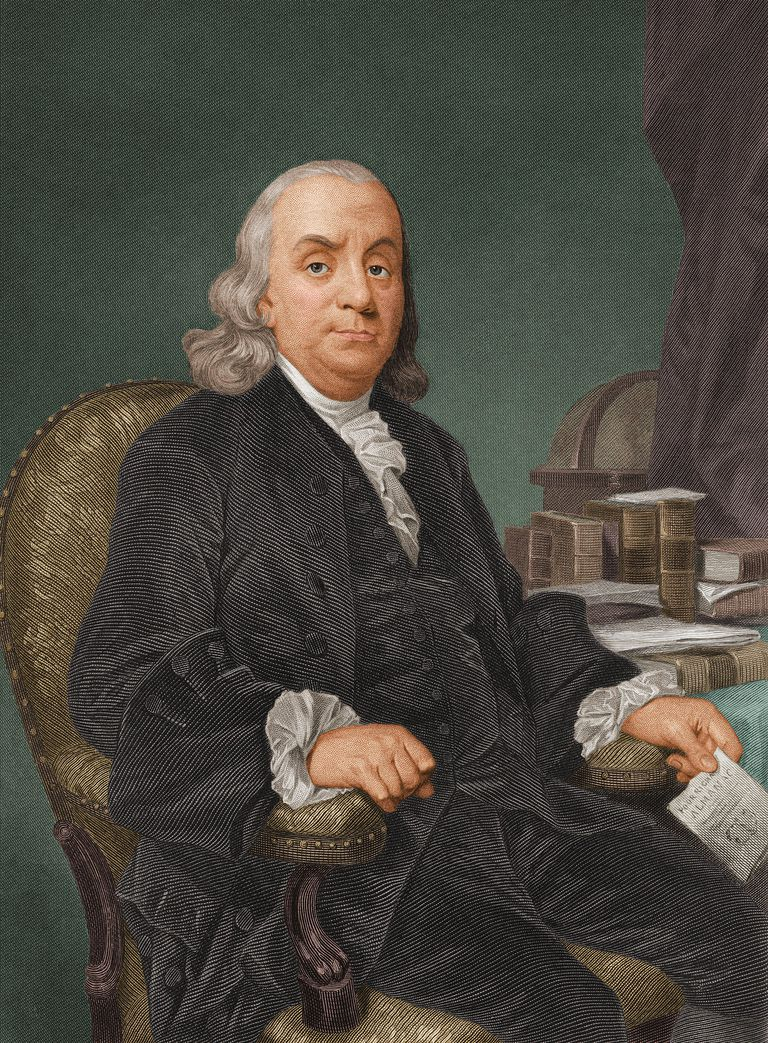
Source: Black Hair 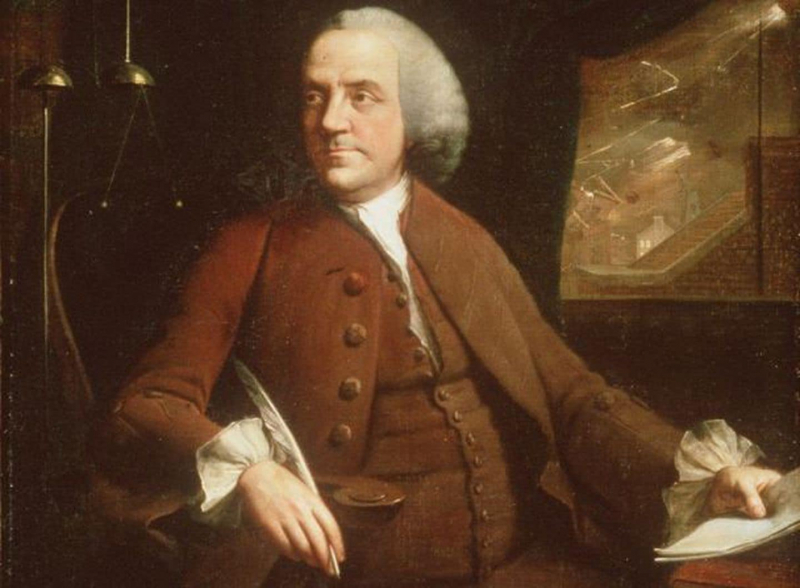
Source: The Washington Post -
On April 17, 1790, Benjamin Franklin appended a codicil, or addendum, to his will, which was written less than a year before his passing. He left the cities of Boston and Philadelphia $1,000 (or what would have been the equivalent of $4000) in it. Franklin, who was born and reared in Boston before moving to Philadelphia when he was 17, held a special place in his heart for both places.
He wrote that there was a very specific method the money was to be handled. Each of the 1000 pounds sterling would earn interest for the first 100 years and be used to pay loans for young tradespeople starting out in company. Franklin appreciated resources for apprentices because he had become a printer thanks to a loan.
At the end of the 100 years, the cities could take 75 percent of the principal and spend it in public works. Boston, he suggested, should invest in a trade school. Philadelphia could possibly pay for water pipes connected to Wissahickon Creek. The remaining 25 percent would be left until another century had passed, at which point the cities and their respective states could spend the funds in whatever way they wished.
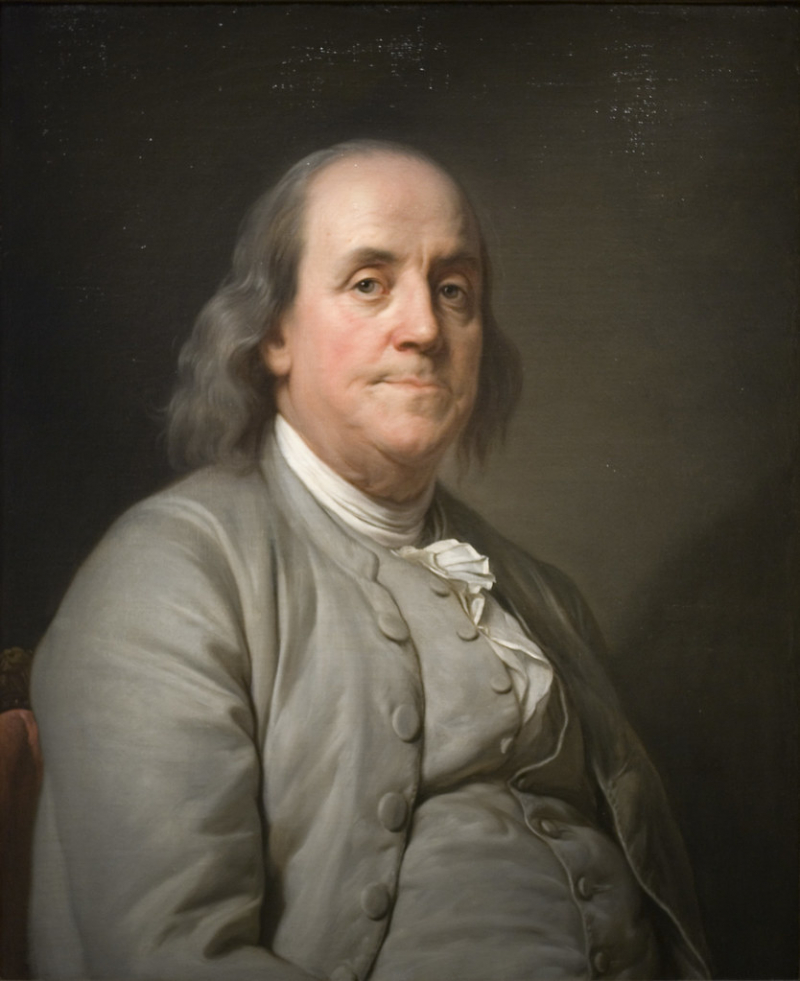
Source: Flickr 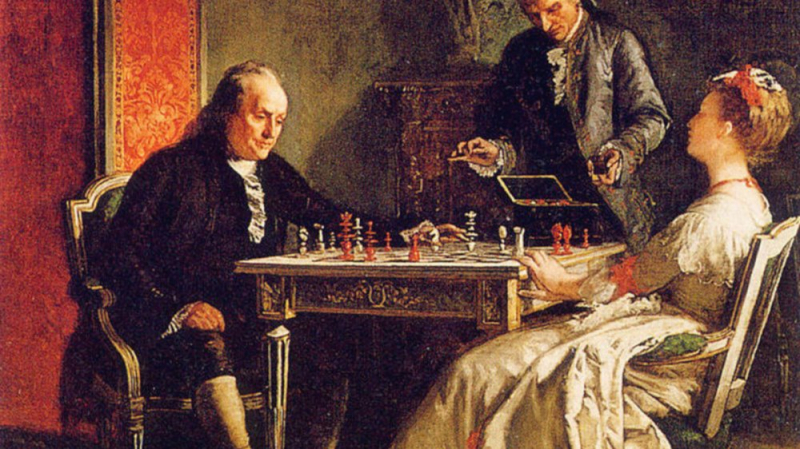
Source: grunge.com












